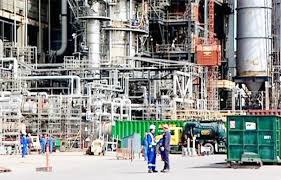Oil marketers in Nigeria have begun talks with international fuel traders to import cheaper Premium Motor Spirit (PMS), commonly known as petrol, as they try to remain in business and compete with Dangote Petroleum Refinery, whose price is currently above N825 per litre. The move is coming as complaints grow among independent marketers and oil workers over the high and unstable pump prices linked to local refining.
The National President of the Petroleum Products Retail Outlets Owners Association of Nigeria (PETROAN), Billy Gillis-Harry, told our correspondent that marketers have no choice but to look outside the country to get cheaper fuel. He said many filling stations have shut down due to high prices and lack of working capital.
Gillis-Harry explained that the only way out is to make direct deals with foreign fuel traders, who can supply petrol at a lower rate and accept payment in naira. According to him, PETROAN had previously entered a deal in November 2024 to import petrol at N550 per litre, with payments agreed in local currency. He described it as a practical way to solve the price problem.
He stressed that although the country has begun local refining, the prices coming from these refineries are discouraging. Many station owners, he said, cannot afford to buy fuel at such high and unstable rates, leading to scarcity in many areas.
“How can you stay in business when you buy fuel today at N870, and before you reach your station, the price drops to N825? The next day, it rises to N890, then back to N865. No business can survive this kind of instability,” Gillis-Harry said. “Marketers need price certainty to plan and survive.”
While he did not mention Dangote directly, he insisted that what matters more than price is the ability to do business smoothly without unpredictable changes. He said it is not just about whether Dangote’s fuel is expensive, but about whether the market allows marketers to stay afloat.
Gillis-Harry also accused Dangote Refinery of trying to dominate the downstream sector by starting direct nationwide distribution of petrol. He warned that this could lead to job losses among tanker drivers and marketers, many of whom depend on fuel transportation and sales for survival.
Also speaking on the issue, the Publicity Secretary of the Independent Petroleum Marketers Association of Nigeria (IPMAN), Chinedu Ukadike, expressed concern that the price of Dangote’s fuel was not competitive. He said some private importers were already selling petrol at lower prices than Dangote, even after paying for foreign exchange, shipping, and taxes.
Ukadike said, “If someone brings in fuel from abroad, pays all the import duties and shipping fees, and still sells at the same price as Dangote, who refines locally, then something is not right.”
He noted that deregulation of the sector was meant to allow a competitive price system, where the forces of demand and supply determine prices. However, he believes that the current situation does not reflect a real deregulated market, as Dangote appears to have control over price movements.
Ukadike blamed the failure of government-owned refineries for the current price situation. He said if the Nigerian National Petroleum Company (NNPC) refineries were working and selling at N600 per litre, it would force Dangote to reduce his price to remain competitive.
He added, “The absence of functional government refineries has handed the market to Dangote. He now determines when fuel prices go up or down. This is not how a deregulated market should function. We need multiple sources.”
Despite the price concerns, Ukadike praised Dangote for addressing fuel scarcity in the country. He said the refinery has large stockpiles that can sustain the nation’s petrol needs for up to 60 days, and this is helping to stabilise supply across the country.
He called on the government to ensure that public refineries start working soon so that Nigerians can benefit from true competition in the fuel market. Both marketers and oil workers agree that restarting the local government refineries will increase supply options and help bring down prices in the long term.
